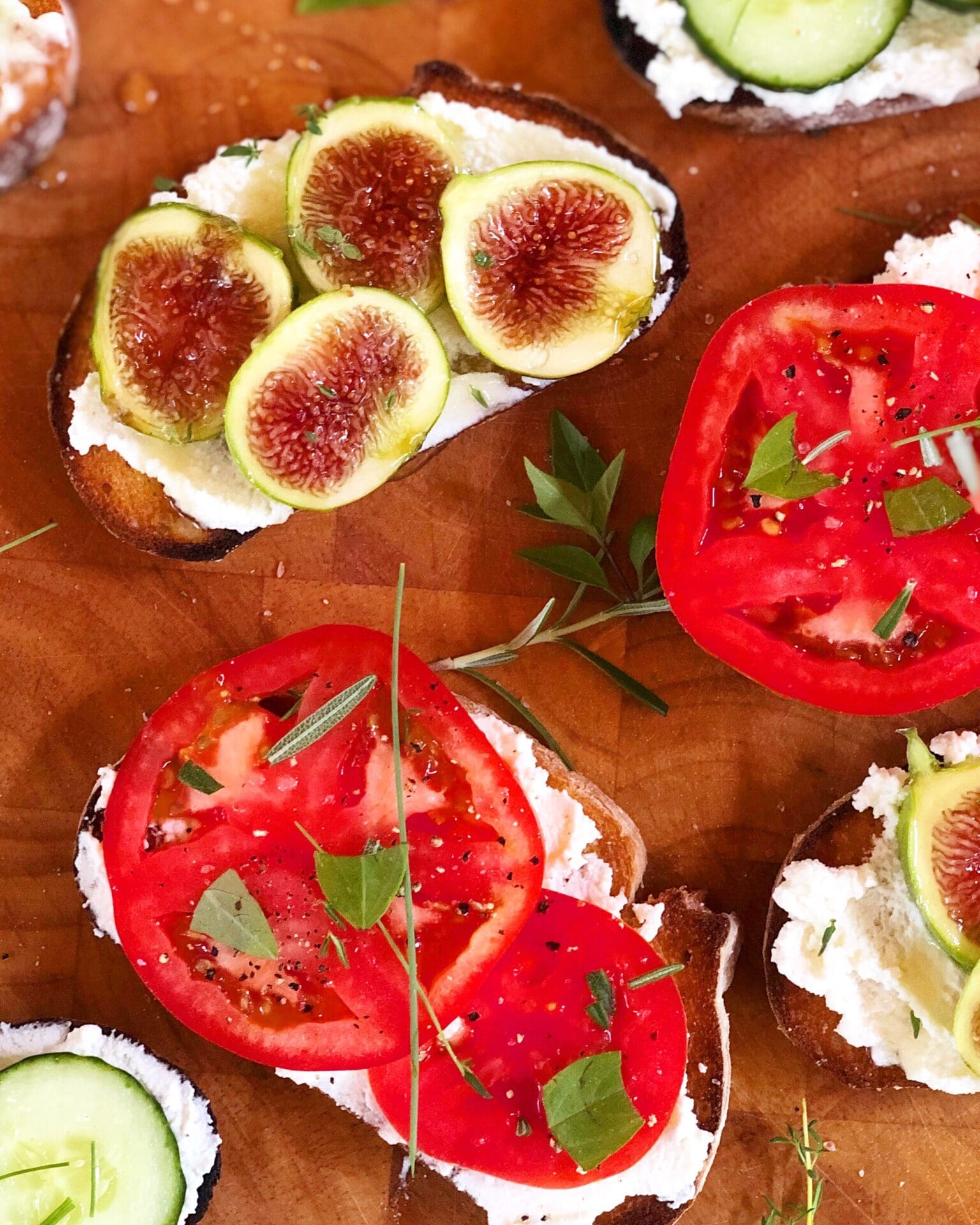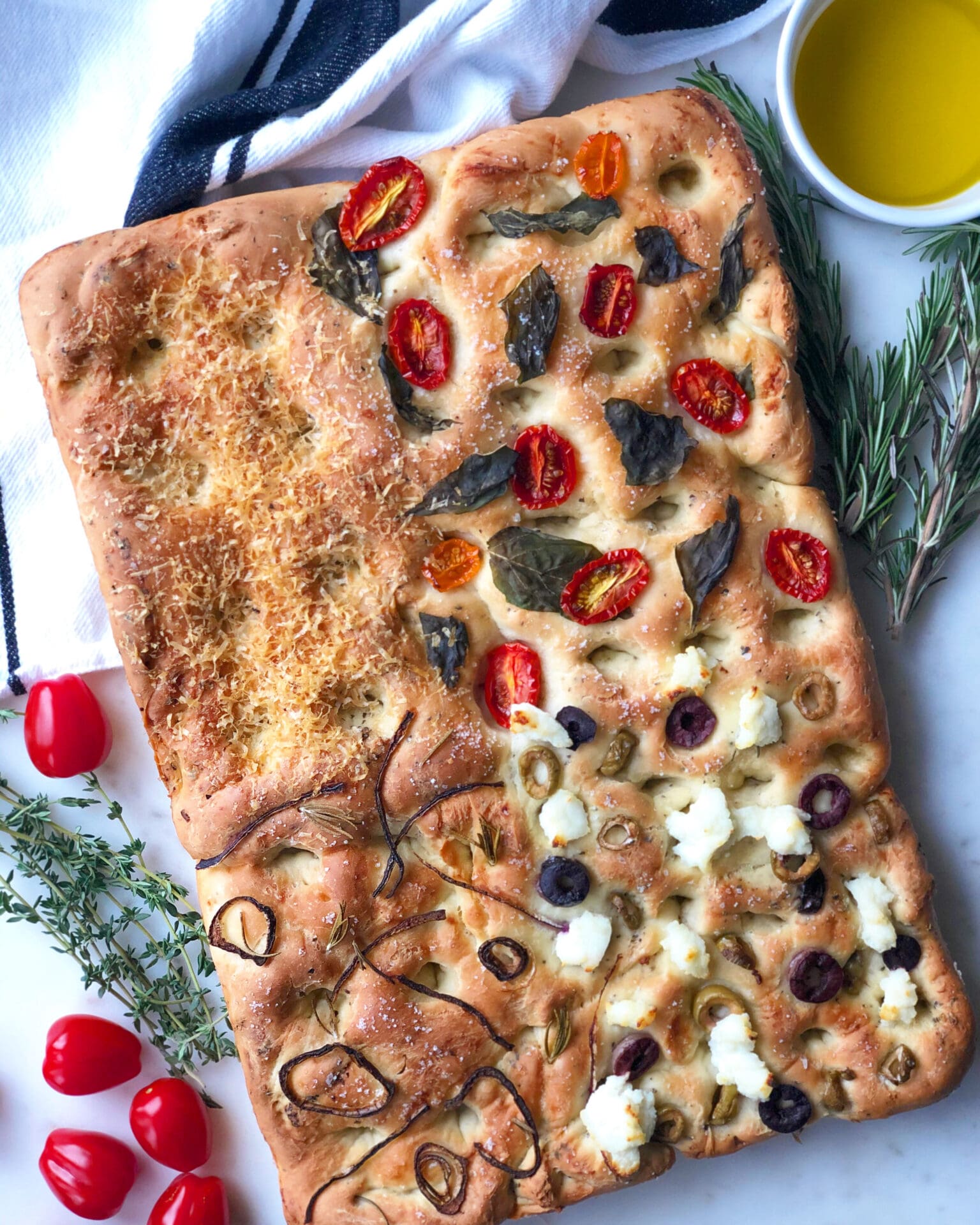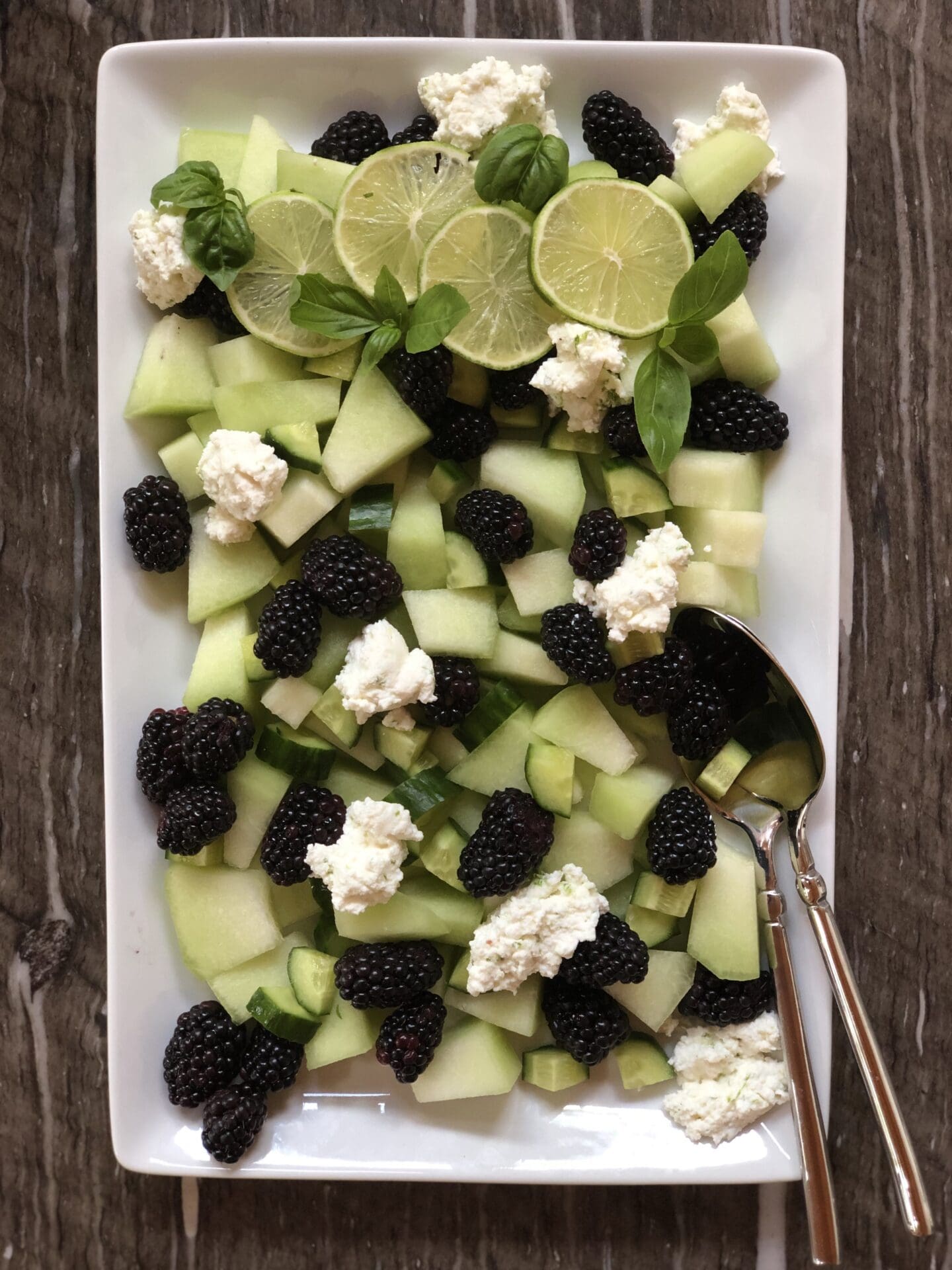Are you ready to add “cheesemaker” to your list of accomplishments? Creamy, tangy and deceptively easy to make, homemade ricotta cheese will be sure to impress. Better than bland grocery store ricotta, all you need for this brilliantly simple recipe is milk, cream, salt and vinegar.
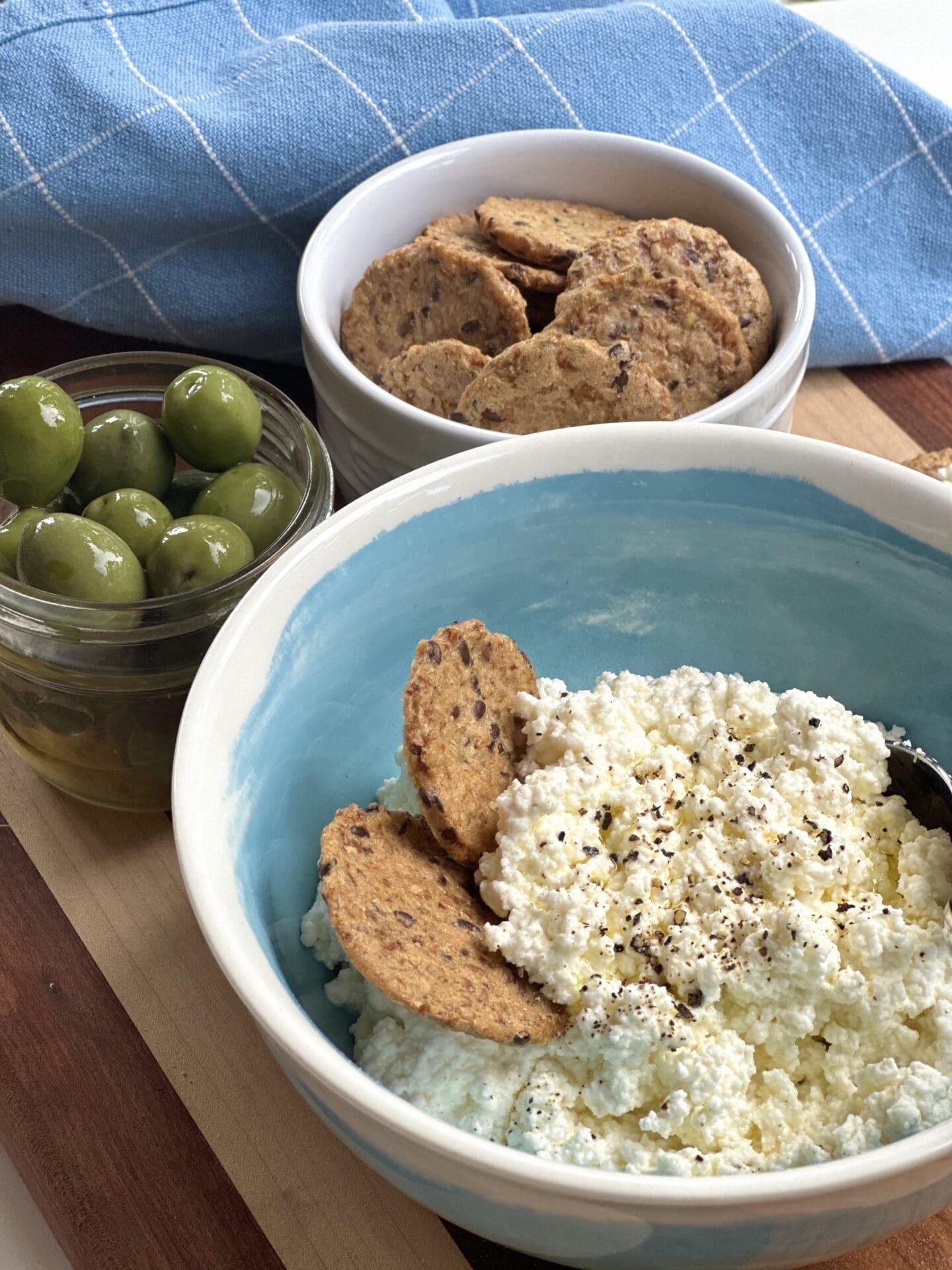
What is ricotta cheese?
Ricotta is a creamy, mild, soft cheese from Italy, with an appearance similar to cottage cheese. It’s a little salty, a little tangy and a little sweet, and oh so versatile. Spread it on toasted bread, dollop it onto pizza, use it in pasta dishes or include it on your next cheese board.
WHAT YOU NEED TO MAKE HOMEMADE RICOTTA CHEESE
The list of ingredients and equipment needed to make homemade ricotta cheese is short and sweet.
INGREDIENTS
- Whole milk: This is milk in which the fat content has not been altered. Skim milk and lower fat milks (1% and 2%) are produced by removing some or all of the fat from whole milk. For this recipe, we want full fat milk with a fat content of 3.25%.
- Heavy cream (whipping cream): You can make ricotta cheese without cream, but it produces a less creamy cheese. In this recipe, heavy cream (often labeled as whipping cream) is added for creamiest results.
- Kosher salt: A little saltiness offsets the slight sweetness, tang and creaminess of the ricotta. The recipe calls for 1/2 tsp of kosher salt, but you can add more if you prefer a saltier cheese.
- White wine vinegar: The acidity of the vinegar is needed to split the milk mixture into curds (solids) and whey (liquid). It also adds that pleasant tang to the cheese. You can use plain white vinegar, though the flavour will be slightly different. Some recipes for ricotta call for lemon juice instead of vinegar. The issue with lemon juice is that lemons do not all contain the same level of acidity. Some lemons are more acidic than others, meaning that 2 Tbsp of lemon juice from a less acidic lemon may not be enough to cause the milk mixture to separate. Vinegar has a more consistent level of acidity and therefore ensures more consistent results.
EQUIPMENT
- A heavy bottomed pot: Use a heavy bottomed stainless steel or an enamelled pot to heat the milk mixture.
- A fine mesh sieve: Also known as a fine mesh strainer, this invaluable piece of kitchen equipment features a basket of finely woven steel mesh. It can be used to strain out small particles from liquids such as in this recipe, but is also very useful for dusting desserts with powdered sugar and sifting dry ingredients.
- Other basic kitchen equipment such as a silicone spatula or wooden spoon, and a large bowl.
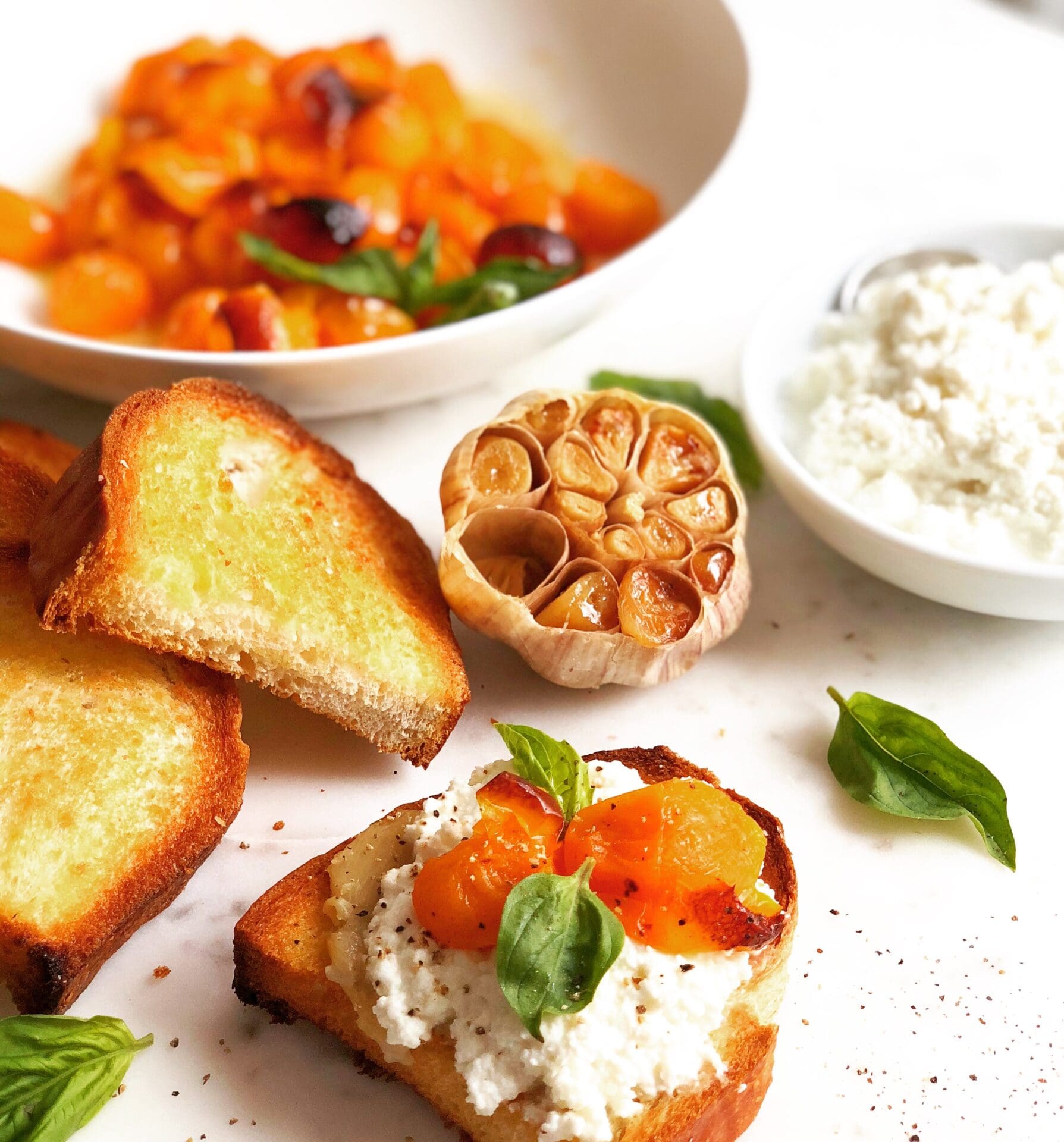
 SERVING SUGGESTIONS
SERVING SUGGESTIONS
My favourite way to serve homemade ricotta is as an appetizer, along with fresh bread. Spoon it into a small serving bowl, drizzle with good olive oil, add a few cracks of fresh pepper and let it shine as the delicious, creamy, homemade cheese that it is. That being said, I make it often to use as an ingredient in all kinds of dishes, from appetizers to desserts. Add chopped fresh herbs for an Herbed Ricotta to slather on sandwiches, use it in pastas, on pizza, in savoury (or sweet) tarts, stuffed into warm crepes or spooned into cannoli.

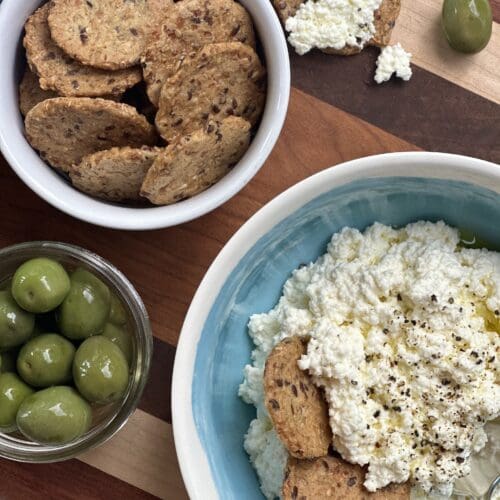
Homemade Ricotta Cheese
Ingredients
- 4 cups whole milk (3.25%)
- 1 cup heavy cream (whipping cream)
- 1/2 tsp kosher salt
- 2 Tbsp white wine vinegar
Instructions
- Place a fine mesh sieve over a large bowl, then set aside.
- Pour the milk, cream and 1/2 tsp of kosher salt into a stainless steel or enamelled pot and bring to a full boil over medium heat, stirring frequently.
- Remove from heat, stir in the vinegar and allow the mixture to sit for 5 minutes as it separates into curds (solids) and whey (liquid).
- Pour the mixture into the fine mesh sieve and allow it to drain at room temperature for about 10 minutes, until most of the liquid has drained out, but the ricotta is still creamy. Transfer the ricotta to a bowl or container and discard the whey (or save for another use). Serve immediately, or cover and store in the fridge.
RECIPE NOTES
- You can make homemade ricotta from regular pasteurized milk. However, avoid any milks labelled “ultra pasteurized” or “ultra high temperature pasteurized” as they won’t separate into curds and whey properly.
- Be sure to stir the milk while it’s heating to prevent scalding, and watch it closely so it doesn’t bubble over.
- If you don’t have a fine mesh sieve, you drain your ricotta through a colander lined with several layers of cheese cloth. Some recipes suggest that should you line your fine mesh sieve with cheese cloth as well. If the mesh on your sieve is fine enough, I find this step to be unnecessary. If you are unsure, go ahead and use cheesecloth as well.
- Ricotta is a fresh cheese and isn’t meant to be aged. Keep your homemade ricotta in an airtight container in the fridge for up to 4 days.
- Don’t throw away the whey! The leftover whey is full of nutrients . Use it in place of water in bread recipes, blend it into smoothies or add it to chicken marinade. I like to use it to add extra flavour to pizza dough.
